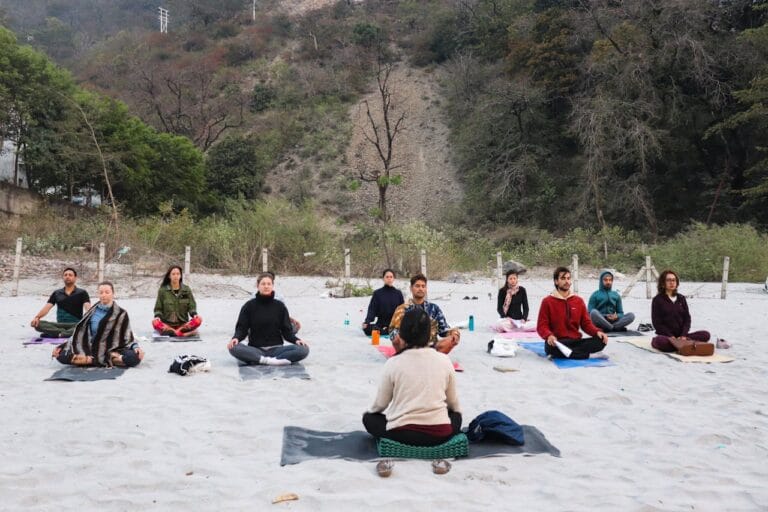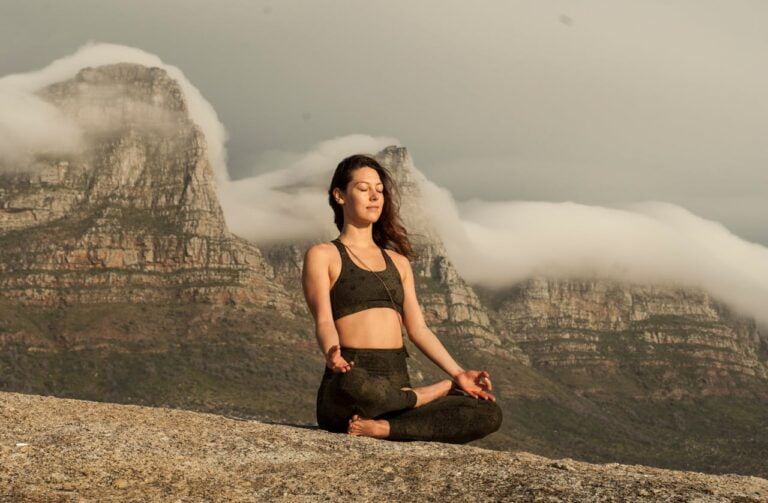Discover the Power of Guided Retreats: Your Path to Healing
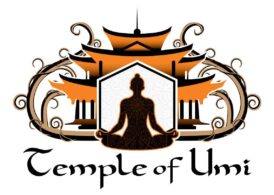
By Temple of Umi
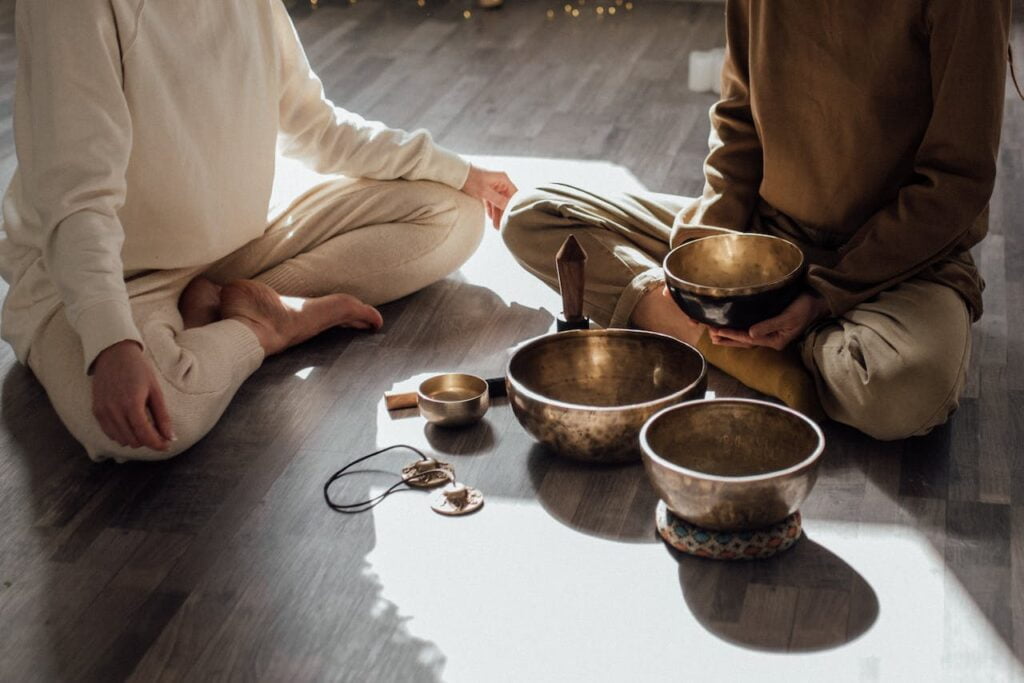
Table of Contents
Explore the transformative benefits of guided retreats across the USA. Discover how these immersive experiences can enhance personal growth, mental clarity, and emotional healing.
Introduction
Many individuals seek a sanctuary for healing and self-discovery in today’s fast-paced world. Guided retreats stand out as a unique opportunity to disconnect from daily distractions and reconnect with oneself. These immersive experiences, led by experienced facilitators, offer a structured environment for personal growth, healing, and transformation, providing unique benefits that we will delve into in this blog post.
What Are Guided Retreats?
Guided retreats are organized experiences that allow participants to engage in personal development, self-reflection, and healing. They can vary in length, style, and focus, encompassing everything from yoga and meditation to nature immersion and spiritual exploration. Unlike traditional vacations, guided retreats are designed to foster deep introspection and growth, inspiring participants to embark on a journey of personal transformation. Learn more.
Types of Guided Retreats
Wellness Retreats: These retreats focus on physical and mental well-being and often incorporate yoga, meditation, healthy eating, and wellness workshops.
Spiritual Retreats: Aimed at those seeking spiritual growth, these retreats may include meditation, prayer, and teachings from spiritual leaders.
Creative Retreats: These retreats encourage participants to explore their creative potential through art, writing, or music, often in a supportive environment.
Nature Retreats: These experiences emphasize reconnecting with nature, incorporating outdoor activities such as hiking, camping, or wildlife observation.
Therapeutic Retreats: Led by licensed professionals, these retreats provide therapeutic support for issues such as trauma, grief, or anxiety.
Why Choose a Guided Retreat?
Expert Facilitation
One of the most significant advantages of attending a guided retreat is the presence of experienced facilitators. These professionals are trained to create a safe and nurturing environment, allowing participants to deeply explore their emotions and experiences. They provide guidance, support, and structure throughout the retreat, ensuring participants gain the most from their experience.
Structured Environment
Guided retreats often follow a structured schedule that balances activities and free time. This structure can help participants feel more grounded and focused, allowing them to delve into their personal growth without the distractions of daily life. From scheduled meditation sessions to group discussions, the planned activities facilitate meaningful connections and self-discovery.
Community Connection
Attending a guided retreat offers the opportunity to connect with like-minded individuals on similar journeys. This sense of community can enhance the retreat experience as participants share their stories, support one another, and build lasting friendships. The bonds formed during a retreat can be potent, fostering a sense of belonging and shared understanding.

Focused Time for Self-Reflection
In our busy lives, it’s easy to neglect self-care and reflection. Guided retreats provide a dedicated space and time for participants to step back from their routines and reflect on their thoughts, feelings, and experiences. This focused time can lead to profound insights and personal revelations, helping individuals better understand themselves and their paths forward.
Holistic Healing
Many guided retreats incorporate holistic healing practices that address the mind, body, and spirit. These practices can include yoga, meditation, breathwork, and energy healing, allowing participants to experience comprehensive wellness. This approach can lead to significant shifts in mindset and emotional health, fostering a sense of peace and balance.
What to Expect at a Guided Retreat
Pre-Retreat Preparation
Before attending a guided retreat, participants should take some time to prepare. This may include:
- Researching the Retreat: Understanding the retreat’s focus, location, and facilitators can help set expectations and ensure a fit.
- Setting Intentions: Reflect on what you hope to gain from the retreat experience. Setting clear intentions can enhance your engagement and commitment during the retreat.
- Packing Mindfully: Consider the activities planned and the retreat’s location when selecting clothing and personal items. For example, if you’re attending a nature retreat, pack hiking gear, and for a wellness retreat, include comfortable clothing for yoga.
During the Retreat
Upon arrival, participants will likely engage in orientation sessions to familiarize themselves with the retreat space, schedule, and facilitators. Throughout the retreat, you can expect:
- Structured Activities: Daily schedules may include yoga classes, meditation sessions, group discussions, workshops, and nature excursions.
- Personal Reflection Time: Participants will typically have free time to journal, reflect, or relax, allowing them to integrate the retreat experience.
- Group Sharing: Many retreats encourage group sharing, where participants can discuss their thoughts and feelings in a supportive environment. This sharing fosters connection and community.
Post-Retreat Integration
After the retreat, it’s essential to integrate the experiences and insights gained. Consider:
- Journaling: Write down your thoughts, feelings, and realizations during the retreat. This practice can solidify your expertise and serve as a reference for the future.
- Continued Practices: Incorporate the techniques learned during the retreat into your daily life, whether meditation, yoga, or mindfulness practices.
- Stay Connected: Maintain relationships with fellow participants. Joining a group or online community can provide ongoing support and connection.
How to Choose the Right Guided Retreat
Identify Your Goals
Before selecting a retreat, take time to reflect on your intentions. Are you seeking relaxation, spiritual growth, or creative inspiration? Identifying your goals will help narrow down your options.
Research Retreat Centers
Look for reputable retreat centers known for their quality programs and experienced facilitators. Read reviews, testimonials, and descriptions of past retreats to gauge previous participants’ experiences.
Consider Location and Setting
The location of a retreat can significantly impact the overall experience. Whether you prefer a serene beach, a tranquil forest, or a cozy mountain cabin, consider what setting will enhance your retreat experience.
Check the Schedule and Activities
Please review the retreat schedule to ensure it aligns with your interests and goals. Pay attention to the types of activities offered and their relevance to your journey.
Assess the Group Size
Some prefer intimate settings with fewer participants, while others thrive in larger groups. Consider your comfort level when choosing a retreat size.
Evaluate the Costs
Retreat costs can vary significantly based on location, length, and amenities. Determine your budget and look for retreats that fit within your financial parameters.
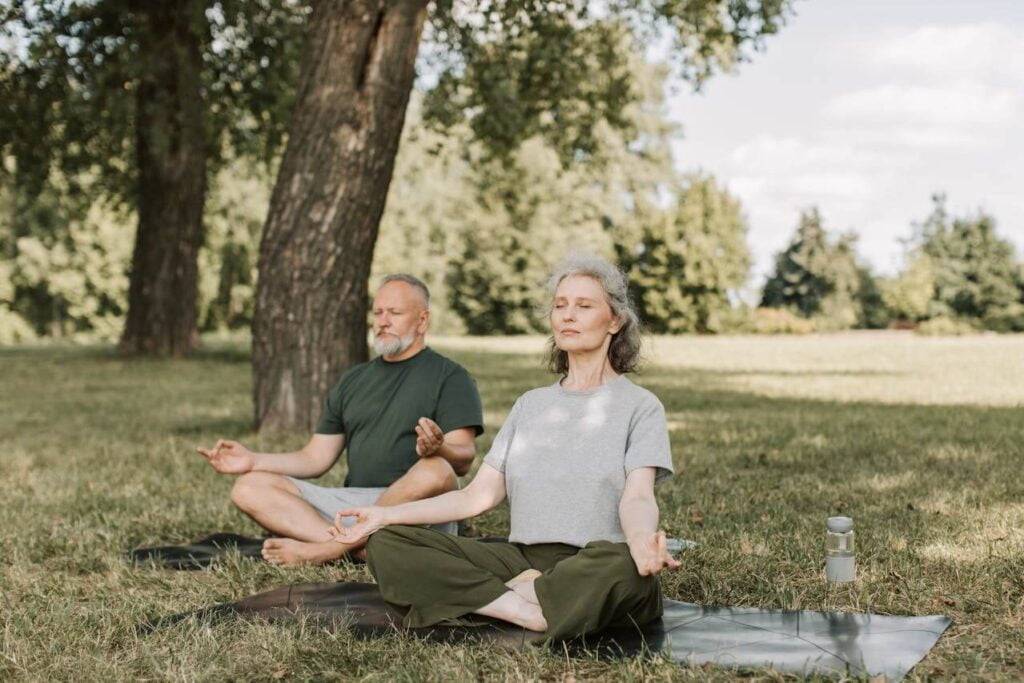
Determination
Guided retreats offer transformative opportunities for healing, self-discovery, and personal growth. Providing a structured environment, expert facilitation, and a supportive community, these experiences can lead to profound insights and lasting change. Whether you seek spiritual awakening, emotional healing, or creative inspiration, there’s a guided retreat for you. Take the first step toward transformation today and explore the various guided retreats available across the USA.
Useful links
- What is Sacred Plant Medicine?
- Embark on a Journey of Transformation with Spiritual Healing
- Unveiling Healing Energy at the Temple of Umi
- 10 Energy Healing Techniques to Transform Your Life
- Where to get Sacred Plant Medicine Retreat in the USA
- Top Plant medicine retreats in the USA. Learn more.
- Cost of Plant Medicine Retreat: Balancing Cost and Experience. Learn more.
- What is trauma bonding?
- A Journey into the Healing Properties of Psychedelic Mushrooms. Learn more.
- Plant Medicine Retreat Georgia – Experience Spiritual Awakening
- Spiritual Retreats Georgia
- Shaman in America Exploration
- Shamanism – Shamanic healing
- Shaman Healing Guide
- Plant Medicine ceremonies near you in the USA
- Plant Medicine Experience
- DMT Journey, Benefits, and Side Effects
- Iowaska – What is it?
- Plant medicine retreats in Georgia
- Why massage is beneficial, according to a cardiologist.
- Are mushrooms truffles – What Is a Truffle?
- 11 Best Plant Medicine Retreats in the USA for Spiritual Healing
- Sacred Plant Medicine Retreats in Georgia
- 5 Ayahuasca Retreats in California Worth Exploring
- 7 Best Aya Retreats in America. Click here.
- Mcdonough Ayahuasca retreat
- Conley Ayahuasca retreat
- Whitesburg Ayahuasca retreat
- Brooks Ayahuasca retreat
- Gay Ayahuasca retreat
- Williamson Ayahuasca retreat
- Orchard Hill Ayahuasca retreat
- Glenn Ayahuasca retreat
- Luthersville Ayahuasca retreat
- Shady Dale Ayahuasca retreat
- Bowdon Junction Ayahuasca retreat
- Sargent Ayahuasca retreat
- Greenville Ayahuasca retreat
- Lovejoy Ayahuasca retreat
- Winston Ayahuasca retreat
- Rutledge Ayahuasca retreat
- Moreland Ayahuasca retreat
- Molena Ayahuasca retreat
- Lebanon Ayahuasca retreat
- Good Hope Ayahuasca retreat
- Haralson Ayahuasca retreat
- An Inclusive List of Psychedelic Quotes
- Mount Ayahuasca retreat
- Grantville Ayahuasca retreat
- Pine Lake Retreat near
- Rydal Ayahuasca retreat
- Porterdale Ayahuasca retreat
- Waco Ayahuasca retreat
- Temple Ayahuasca retreat
- Bethlehem Ayahuasca retreat
- Jenkinsburg Ayahuasca retreat
- Adairsville Ayahuasca retreat
- Red Oak Ayahuasca retreat
- Woodbury Ayahuasca retreat
- Cassville Ayahuasca retreat
- Redan Ayahuasca retreat
- North Decatur Ayahuasca retreat
- Grantville Ayahuasca retreat
- Hillsboro Ayahuasca retreat
- Jackson Ayahuasca retreat
- Braselton Ayahuasca retreat
- Zebulon Ayahuasca retreat
- Flovilla Ayahuasca retreat
- Auburn Ayahuasca retreat
- Warm Springs Ayahuasca retreat
- Scottdale Ayahuasca retreat
- Lithia Springs Ayahuasca retreat
- Villa Rica Ayahuasca retreat
- Grayson Ayahuasca retreat
- Sunny Side Ayahuasca retreat
- Senoia Ayahuasca retreat
- Locust Grove Ayahuasca retreat
- Chamblee Ayahuasca retreat
- Fairburn Ayahuasca retreat
- Snellville Ayahuasca retreat
- Monticello Ayahuasca retreat
- Union City Ayahuasca retreat
- Tallapoosa Ayahuasca retreat
- Bremen Ayahuasca retreat
- Hampton Ayahuasca retreat
- Monroe Ayahuasca retreat
- Marble Hill Ayahuasca retreat
- Madison Ayahuasca retreat
- Dawsonville Ayahuasca retreat
- Felton Ayahuasca retreat
- Concord Ayahuasca retreat
- Mansfield Ayahuasca retreat
- Taylorsville Ayahuasca retreat
- Roopville Ayahuasca retreat
- Turin Ayahuasca retreat
- Franklin Ayahuasca retreat
- Clarkdale Ayahuasca retreat
- Talking Rock Ayahuasca retreat
- Jersey Ayahuasca retreat
- Kingston Ayahuasca retreat
- Bostwick Ayahuasca retreat
- North Metro Ayahuasca retreat
- Meansville Ayahuasca retreat
- Social Circle Ayahuasca retreat
- White Ayahuasca retreat
- Rhode Island Ayahuasca retreat
- Maryland Ayahuasca retreat
- Delaware Ayahuasca retreat
- New Jersey Ayahuasca retreat
- Connecticut Ayahuasca retreat
- Massachusetts Ayahuasca retreat
- Hampshire Ayahuasca retreat
- Pennsylvania Ayahuasca retreat
- New York Ayahuasca retreat
- Florida Ayahuasca retreat
- South Carolina Ayahuasca Retreat
- North Carolina Ayahuasca Retreat
- West West Virginia Ayahuasca retreat
- Virginia Ayahuasca retreat
- Ohio Ayahuasca retreat
- Alabama Ayahuasca retreat
- Mississippi Ayahuasca retreat
- Tennessee Ayahuasca retreat
- Kentucky Ayahuasca retreat
- IndianaAyahuasca retreat
- ILLINOIS Ayahuasca retreat
- Missouri Ayahuasca retreat
- Arkansas Ayahuasca retreat
- Louisiana Ayahuasca retreat
- Texas Ayahuasca retreat
- Oklahoma Ayahuasca retreat
- KansasAyahuasca retreat
- Ayahuasca retreats near me in Experiment.
- A wellness retreat in Georgia
- What is Ayahuasca?
- Embark on a Journey of Transformation with Spiritual Healing
- Unveiling Healing Energy at the Temple of Umi
- 10 Energy Healing Techniques to Transform Your Life
- Where to get Ayahuasca in the USA
- Top Ayahuasca retreats in the USA. Learn more.
- Cost of Ayahuasca Retreat: Balancing Cost and Experience. Learn more.
- What is trauma bonding?
- A Journey into the Healing Properties of Psychedelic Mushrooms. Learn more.
- Ayahuasca Retreat Georgia – Experience Spiritual Awakening
- Spiritual Retreats Georgia
- Shaman in America Exploration
- Shamanism – Shamanic healing
- Shaman Healing Guide
- Ayahuasca ceremonies Ayahuasca ceremonies near you in the USA
- Ayahuasca Experience
- DMT Journey, Benefits, and Side Effects
- Iowaska – What is it?
- Plant medicine retreats in Georgia
- Why massage is beneficial, according to a cardiologist.
- Are mushrooms truffles – What Is a Truffle?
- 11 Best Ayahuasca Retreats in the USA for Spiritual Healing
- What is Rapé?
- What is a Tincture?
- Where to find Ayahuasca near me
- Healing retreats USA
- Best Retreats USA





